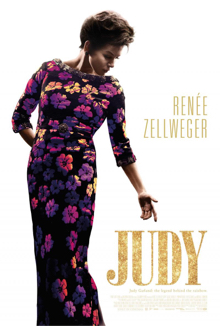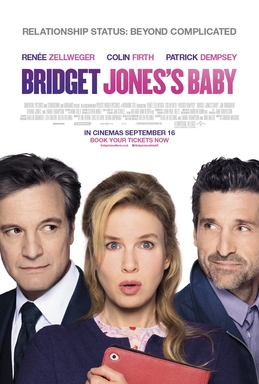Judy
Posted on September 26, 2019 at 5:52 pm
B +| Lowest Recommended Age: | Middle School |
| MPAA Rating: | Rated PG-13 for substance abuse, thematic content, some strong language, and smoking |
| Profanity: | Some strong language, one f-word |
| Alcohol/ Drugs: | Substance abuse including pills and alcohol |
| Violence/ Scariness: | Medical/addiction issues |
| Diversity Issues: | None |
| Date Released to Theaters: | September 27, 2019 |

On YouTube you can find a clip from Judy Garland’s 1963 variety television series where she sings “The Christmas Song” (the one that begins with the chestnuts roasting on an open fire) with its co-writer, Mel Torme. It is a very festive scene, and you can glimpse Garland’s three children, Liza Minnelli and Lorna and Joey Luft. It has an intimate, natural feeling and we can see that Garland is genuinely fond of Torme, who was creating all of the specialty musical material for her show. You can also see Garland’s impressive musicianship as she joins the duet, every note, beat, impeccable. And then comes a small mistake. We all know the lyrics by heart: “And every mother’s child is gonna spy /To see if reindeer really know how to fly.” But instead of “reindeer,” Judy Garland cannot help singing a word she has been singing since she was a teenager. She sings, “if rainbows really know how to fly.”
Everything covered in “Judy,” about the last months of Garland’s life, is evident in that brief clip, her mesmerizing, once-to-a-planet talent, even after the years of drinking and drug use, her fierce love for her children and dedication to keeping them near her, and the haunting memories of her early years of stardom and abuse. And there is one more thing, which is what takes Renee Zellweger from an impersonation to a performance and is the film’s most significant insight. We see how Garland, who tells us she first sang in public at age 2, is always, always, always treating the people around her as an audience. She is always wooing, pleasing, flirting, even pleading. In one charming scene, as she entertains Joey and Lorna to cheer them up that she has to leave them with their father while she takes a job in London, singing at a club called Talk of the Town.
Her appearance there is still legendary. Some nights she was everything her fans adored her for — the ultimate in talent, showmanship, and pure star power. Some nights were catastrophic, the portrait of total decompensating collapse. Some nights she never made it on stage.
In this retelling, the story is simplified to this: Garland was exploited, isolated, and abused as a child performer, constantly nagged about her weight, fed pills to keep her from eating and then, when those kept her awake, given more pills to put her to sleep. The money disappeared, so she had to keep working when all she wanted to do was stay with her children. As it begins, with a flashback, we see Louis B. Mayer present the teenaged Garland with the eternal choice faced by Achilles. Does she want a happy but quiet life or does she want to be important and known by millions? Standing on the yellow brick road in the set for “The Wizard of Oz,” she chooses the only option she has ever known: stardom. And, this movie suggests, the chaos that resulted was inevitable.
There are too many flashbacks, perhaps included for the current generation, who may not know the details of Garland’s story. Certainly, though, they are familiar with the idea that celebrities often have traumatic and unstable lives, and the flashbacks add very little. The present day (in the world of the film) scenes of Garland’s last romance and last performances are not especially dramatic or insightful, though there are some clever lines (a doctor asks if she takes anything for depression and Garland answers: “Four husbands”) and some touching scenes, including one where she impulsively spends the evening with a pair of fans, eating eggs and singing at their piano. That scene suggests the conflict between the unquenchable need for an audience and the hope of home and peace and family.
What there is here is Zellweger’s total immersion in the performance, as with Garland too often herself, so vital and impossible to look away from that it transcends the limits of the material she outshines.
Parents should know that this film includes substance abuse — liquor and pills — and pills being given to a teenager, child custody issues, and some strong language.
Family discussion: How did Judy Garland’s childhood experiences determine her adult choices? Could anyone have helped her?
If you like this, try: the films of Judy Garland, especially “The Wizard of Oz,” “Easter Parade,” and “A Star is Born” and a story similar to this one, “Film Stars Don’t Die in Liverpool”



